Making History in Massachusetts
On the path of the Bay State’s trailblazers and trendsetters.
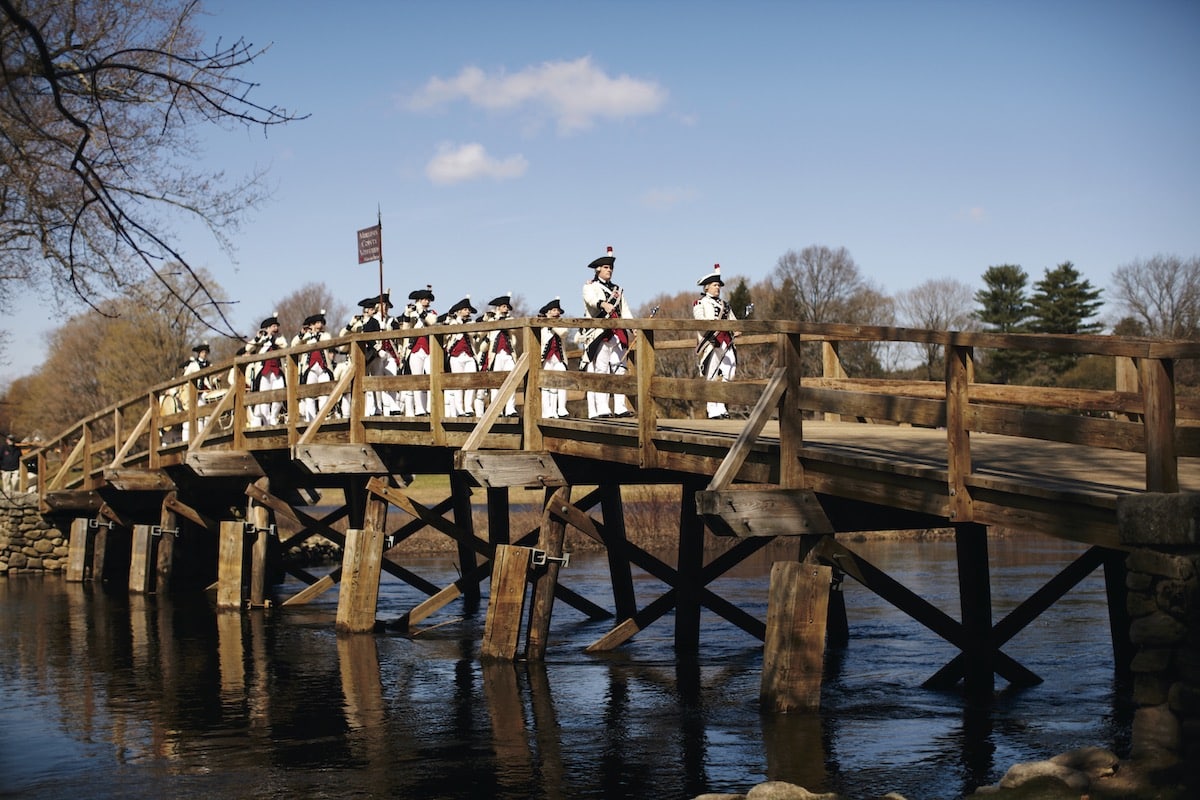
Concord’s North Bridge, where the first Revolutionary War battle began, is at the heart of Minute Man National Park in Lexington and Concord.
Photo Credit : Jonathan Kozowyk & Henry HungSponsored by the Massachusetts Office of Travel & Tourism
From the moment the Mayflower dropped anchor off Cape Cod up to the present day, Massachusetts has been a home for trailblazers. Its famous “firsts” in everything from recreation to civil rights have helped shape the nation and influence the world. And while its Revolutionary War sites may take center stage as America’s 250th approaches in 2026, the Bay State is filled with places to explore how its farsighted thinkers and doers have left their mark.
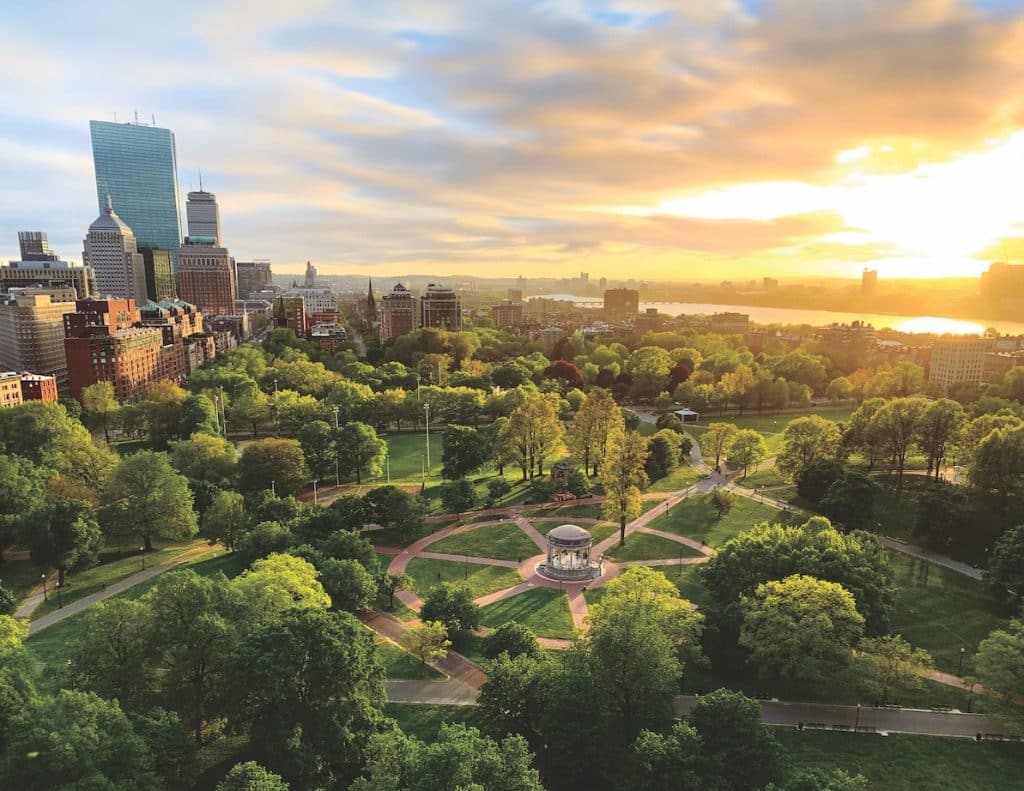
Photo Credit : Christopher Marino/iStock.com
Founding Footsteps
The Pilgrims, a group of English settlers fleeing religious persecution in their home country, are most closely linked with the charming coastal town of Plymouth, also known as the site of the first Thanksgiving in 1621. The Pilgrims actually made their initial landing the previous year, in present-day Provincetown, as commemorated by the Pilgrim Monument and Provincetown Museum. Unaccustomed to the severity of New England winters, however, the settlers soon moved on to Plymouth, which was better suited for farming and permanent settlement. Today, Plimoth Patuxet Museums brings their experience to life alongside that of the indigenous peoples who helped them survive in the New World.
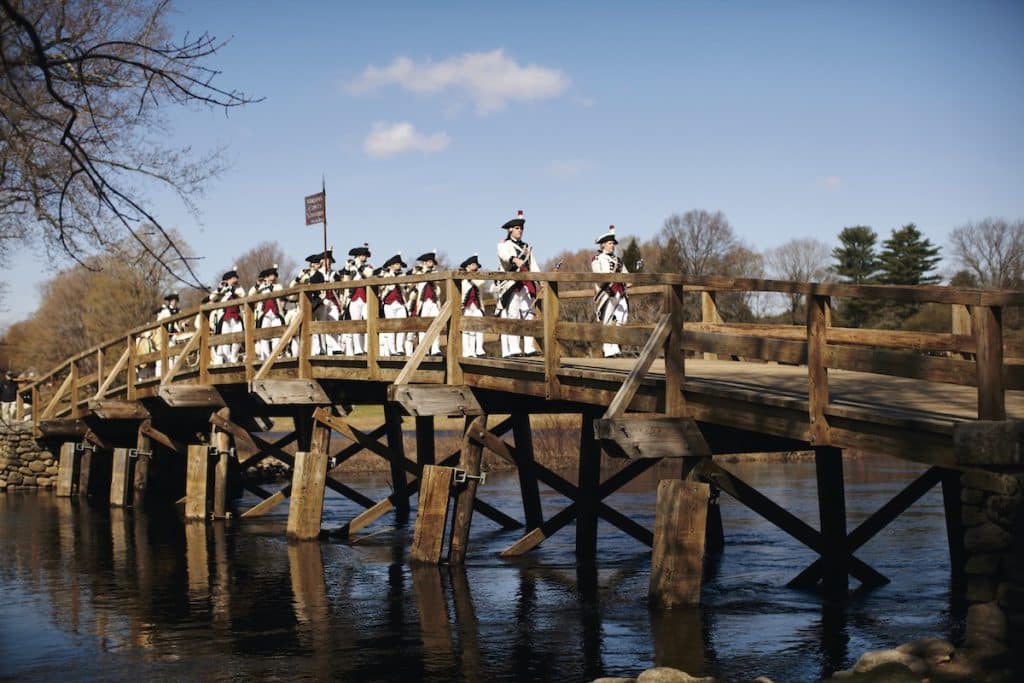
Photo Credit : Jonathan Kozowyk & Henry Hung
By 1775, the now-thriving Massachusetts Bay Colony had grown in population to more than 270,000. Just after sunrise on April 19 of that fateful year, colonial militia and British regulars faced off in the Battles of Lexington and Concord, when the first shots were fired in the American War of Independence. You can walk the same land as those troops—and stand on Concord’s famed North Bridge—at Minute Man National Historical Park.
Innovation Milestones
Massachusetts is home to some of America’s oldest educational institutions, including the first public secondary school, Boston Latin School (1635), and the first university, Harvard, which has educated some of the world’s most accomplished figures since opening in Cambridge in 1636. Three years later in Dorchester, the Mather School was established as the country’s first free public elementary school.
That kind of dedication to learning would help turn the Bay State into a pioneer of innovation. On March 10, 1876, in a boardinghouse in Boston’s Back Bay neighborhood, Alexander Graham Bell placed the very first telephone call to his trusty assistant, Thomas Watson, and uttered the now-legendary words, “Mr. Watson, come here.” Two months later at the Boston Athenaeum, which still stands beside Granary Burying Ground on Beacon Street, Bell delivered the first public demonstration of this technology that would forever change the way we communicate.
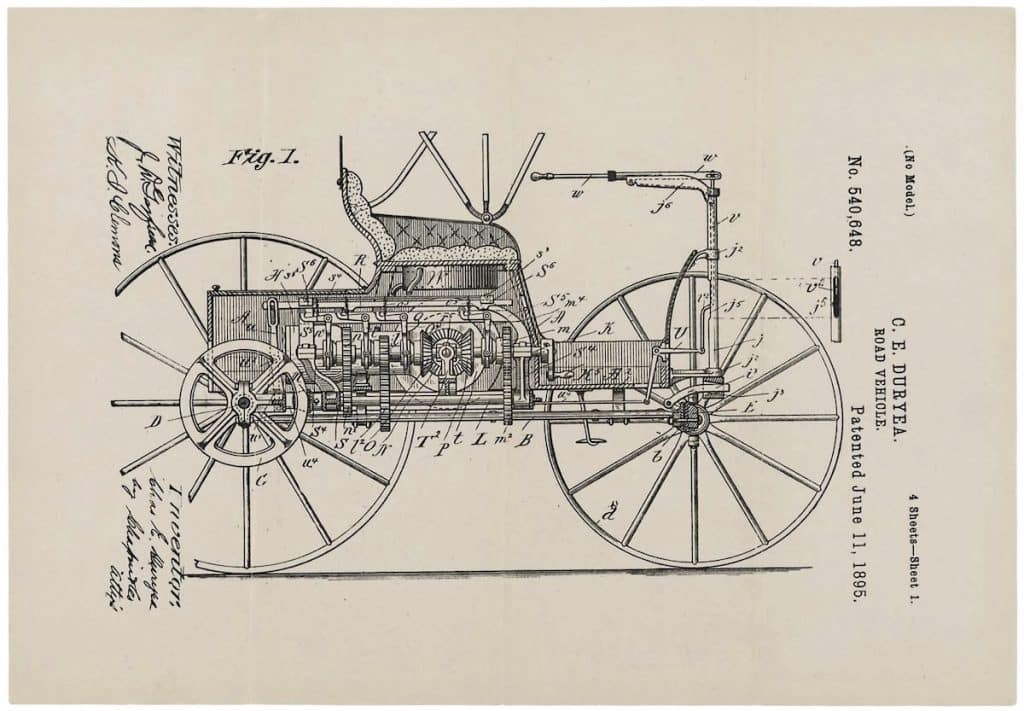
Photo Credit : National Archives
Other invaluable Massachusetts inventions include the typewriter (Worcester, 1843), the sewing machine (Boston, 1845), and the computer (Cambridge, 1928). Speaking of typewriters, it’s fitting that America’s first novel—1789’s The Power of Sympathy, by Boston’s William Hill Brown—was written here, in a state long associated with literary giants.
Massachusetts’s trailblazing in transportation technology starts with America’s first lighthouse, constructed in Boston Harbor in 1716. In Quincy, engineer Gridley Bryant launched the earliest U.S. railroad in 1826 to transport granite for the Bunker Hill Monument, while Springfield saw the debut of the first gas-powered automobile in 1893—just four years before the nation’s earliest subway rumbled to life in Boston. And in 1942, the General Electric plant in Lynn revolutionized the aviation industry by building the first jet airplane engine.
Game Changers
Sports fans can credit Massachusetts innovators with two iconic American pastimes. In the aptly named Pioneer Valley, a Springfield PE teacher named James Naismith invented one of the most popular sports in the world, basketball, in 1891. His achievement is commemorated today at Springfield’s pilgrimage-worthy Naismith Basketball Hall of Fame, which recently underwent a $23 million expansion. Not long after basketball made its debut, Naismith protégé William Morgan introduced another soon-to-be-famous game, volleyball, in nearby Holyoke (now home to the International Volleyball Hall of Fame).
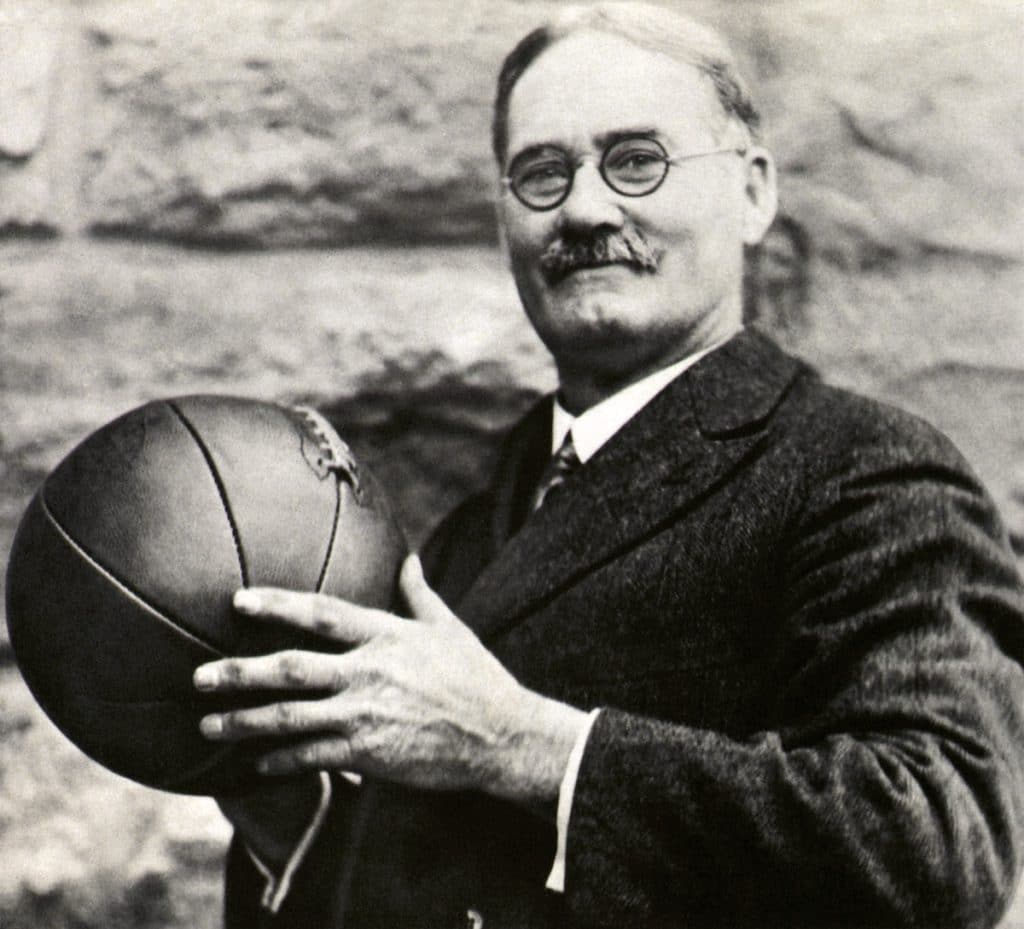
Photo Credit : Pictures Now/Alamy Stock Photo
But in fact, Massachusetts has been embracing recreational pursuits nearly since the time of its founding. As you stroll amid the verdant lawns and stately shade trees of Boston Common, consider that you’re visiting America’s very first public park, established back in 1634.
Foodie “Firsts”
Thanks in part to the seafood-rich waters on its doorstep, the Bay State has long played a notable role in how Americans eat. It’s home to the country’s oldest continuously operated restaurant, Union Oyster House, which opened in 1826 in downtown Boston. In 1916 on the North Shore, Lawrence “Chubby” Woodman invented one of New England’s most beloved seaside delicacies, fried clams. You can still sample these plump bivalves at the restaurant he founded, Woodman’s of Essex (a place so classically Massachusetts that it’s appeared in several movies filmed here, including Manchester by the Sea).
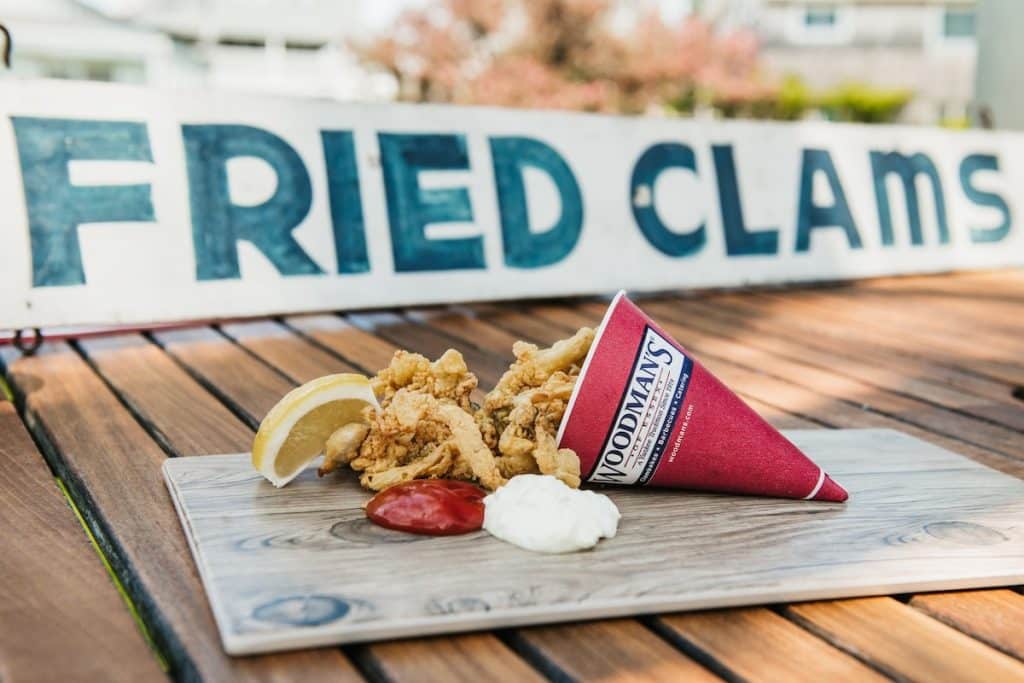
Photo Credit : Courtesy of Woodman’s of Essex
Another tasty contribution to the national culture occurred in 1950, when William Rosenberg founded the first Dunkin’ Donuts in Quincy; there are now nearly 13,000 locations worldwide of this iconic purveyor of doughnuts and coffee. And if you’re wondering about the origin of a Dunkin’ mainstay, the “Boston Kreme” doughnut—it was inspired by the actual Boston Cream Pie. The official state dessert of Massachusetts, this rich confection was invented in 1856 at Boston’s Omni Parker House Hotel, which opened in 1855 and claims to be the nation’s longest continuously operated hotel.
Dunkin’ is just one in a long line of restaurant chains and food brands that were launched in the Bay State. Others you may know include Ocean Spray (1930), Friendly’s ice cream (1935), Legal Sea Foods (1950), Au Bon Pain (1978), Cape Cod Potato Chips (1980), Bertucci’s (1981), and Samuel Adams beer (1984).
Civic Standouts
In 1780 Massachusetts became the first U.S. state to enact a constitution, a document that also qualifies today as the oldest of its kind in the world. This was a crowning civic achievement for a place that had already ushered in such vital institutions as America’s first post office, founded at Richard Fairbanks’s tavern (Boston, 1639); the earliest public library (Boston, 1653); and the first newspaper, The Boston News-Letter (Boston, 1704). Fittingly, neighboring Cambridge had set up the nation’s earliest printing press in 1638.
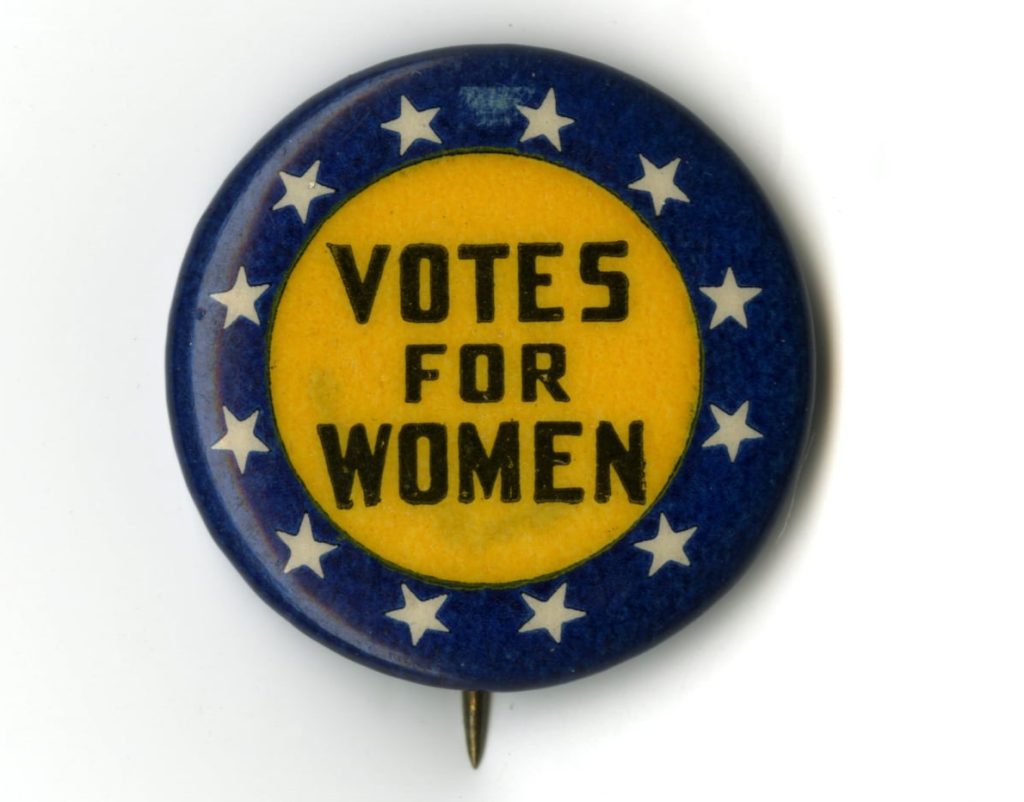
Photo Credit : Smithsonian Institution
In later years, the Bay State would stand at the forefront of civic equality by holding the first National Women’s Rights Convention at Worcester’s Brinley Hall in 1850. Less than 30 years later, Boston University graduated the first woman in America to earn a PhD, Helen Magill White. And in 2004, Massachusetts led the nation in enshrining a civil right that’s since been established on a federal level, same-sex marriage equality, as longtime partners Marcia Kadish and Tanya McCloskey exchanged their vows at Cambridge City Hall.
Andrew Collins
Andrew Collins is a travel writer based part-time in New Hampshire and the author of numerous guidebooks, including "Ultimate Road Trips USA & Canada."
More by Andrew Collins

